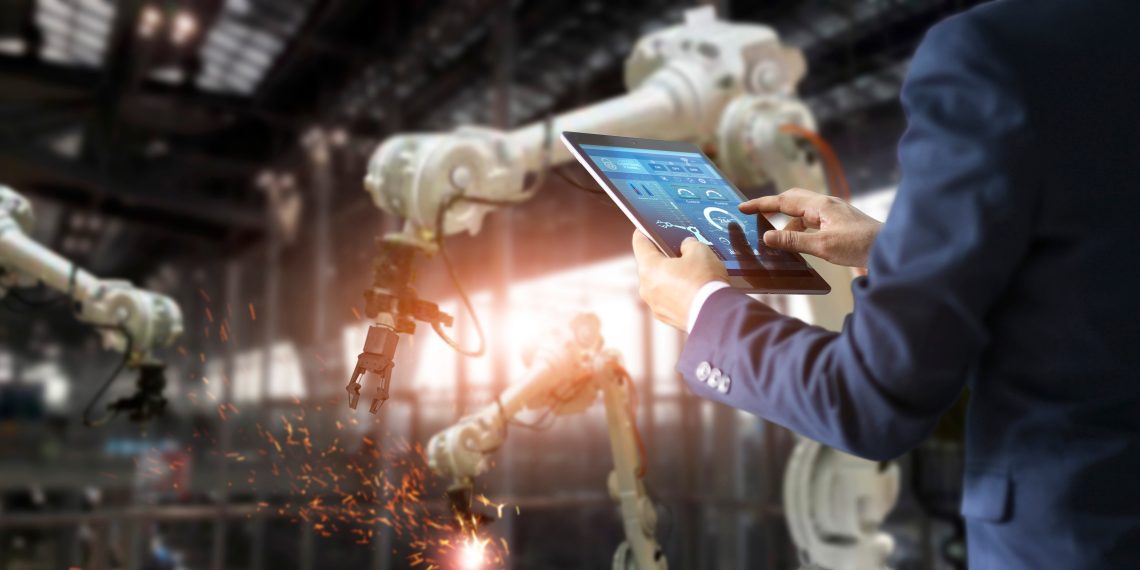Industrial firms in the MENA region, particularly in Saudi Arabia and the UAE, are emphasizing the importance of quality and efficiency, in contrast to their Western counterparts who are focused on cost-cutting measures. This was highlighted by Ediz Eren, Regional VP for META at Rockwell Automation, while discussing insights from the company’s 9th State of Smart Manufacturing Report.
The report indicates that Saudi Arabia and the UAE, significant players in the Middle East’s manufacturing landscape, are encountering distinct challenges in their developmental phase. These challenges include maintaining exceptional quality standards and securing robust supply chains.
Eren points out, Our regional goals are ambitious; we aim to scale up and extend our reach globally, but not without ensuring top-notch quality and a seamless supply chain, whereas mature markets are more concerned with cost reduction and safeguarding existing profit margins amid competition,
he explained.
According to the report, a primary objective for businesses in Saudi Arabia and the UAE is to penetrate new markets and pursue international growth through smart manufacturing technologies. This goal was identified by 41 percent of respondents, surpassing the global average of 33 percent. When it comes to return on investment, supply chain planning emerged as the most lucrative, outperforming figures from the US and Europe.
Eren added, In this phase of expansion, supply chain complexities are the foremost issue. Being swift and maintaining quality are the region-specific priorities,
he noted.
Advanced AI Adoption
Findings reveal that 44 percent of participants from the region are banking on AI/Machine Learning to drive substantial business outcomes, which is higher than responses from the US and Europe. The survey also uncovered that 87 percent of companies in Saudi Arabia and the UAE are poised to invest in AI and ML technologies within the upcoming year, with generative AI taking the lead.
The prominent applications of generative AI include quality control, cybersecurity, robotics, and supply chain management. Eren elaborates that generative AI is being integrated with automation and human input to transition from automated processes to autonomous ones, enhancing productivity, cost efficiency, and quality consistency in manufacturing.
He cites the food and beverage sector as an example, where compliance with food safety standards is paramount. Rockwell Automation’s IIOT platform plays a vital role in monitoring perishables and environmental conditions and optimising the supply chain based on production needs.
Tackling Skill Gaps
However, the transition to smarter manufacturing is not without its challenges. Both Saudi Arabia and the UAE have identified a significant shortage of skilled labor (46%) as a major barrier to adopting advanced manufacturing technologies. To combat this, companies are increasingly turning to automation, with 45 percent indicating a move towards this solution. Other strategies include outsourcing to consultants and integrating AI technologies.
Eren stresses the importance of individuals not only possessing analytical capabilities but also understanding and applying market technologies to innovate within the manufacturing environment.
The push towards automation, including robotics, is also seen as a risk mitigation strategy, particularly in light of the pandemic which exposed the vulnerabilities of relying heavily on human labor in production lines.
Environmental Concerns
Another significant finding from the report is the heightened concern for climate change amongst companies in Saudi Arabia and the UAE. These companies view environmental challenges as a major hurdle to growth, more so than their counterparts in the US and Europe. The region’s focus on energy-intensive industries such as mining and oil necessitates strategies for decarbonization and energy reduction.
Rockwell Automation addresses these concerns by providing comprehensive energy management solutions that enable clients to fund technology investments through energy savings. Despite a willingness to invest in technology, about a quarter of companies reported feeling overwhelmed by the plethora of options, a phenomenon referred to as ‘technology paralysis’.
To mitigate this, Eren suggests the adoption of proof-of-concept pilot projects to demonstrate the efficacy of new technologies before full-scale implementation.
The survey by Rockwell Automation encompassed over 1,550 respondents from 17 different countries, including Saudi Arabia and the UAE.


